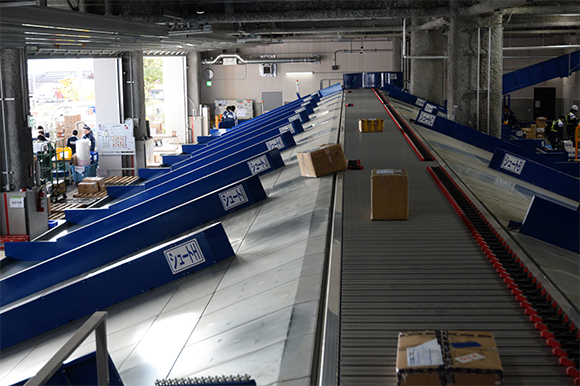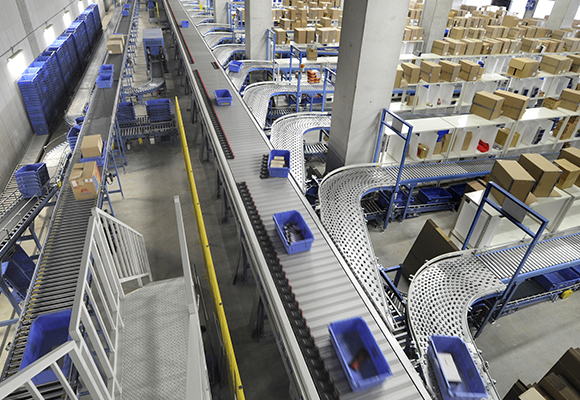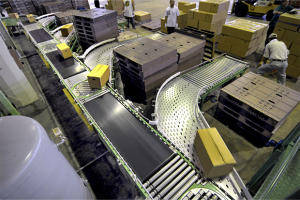Introduction
In today’s rapidly evolving industrial landscape, automation is no longer a luxury – it’s a necessity. As we’ve seen in our discussion on the future of industrial automation, businesses seeking to improve productivity, reduce labour costs, and enhance product quality are increasingly turning to industrial automation.
However, with numerous types of automation systems available, selecting the right one can be a complex decision. This article explores the various types of industrial automation and provides guidance on how to choose the most suitable system for your operations.

Understanding the Different Types of Industrial Automation
Industrial automation can be categorised into several key types, each designed for specific operational needs:
- Fixed (Hard) Automation
This type is best suited for high-volume, repetitive manufacturing processes. Once set up, fixed automation systems perform a specific task with high efficiency. Examples include assembly lines in automotive production. - Programmable Automation
Used in batch production processes, programmable automation allows for equipment configuration changes via software. This type is ideal for operations producing different product variants over time. - Flexible (Soft) Automation
Flexible automation systems are designed for quick changeovers. They can handle multiple tasks without extensive reprogramming, making them suitable for operations with high product variety and lower volumes. - Integrated or Intelligent Automation
This advanced type combines AI, sensors, and real-time data to manage complex operations. Intelligent automation supports adaptive manufacturing, predictive maintenance, and process optimisation.
Factors to Consider When Choosing Automation Types
Selecting the right type of automation depends on a variety of operational, technical, and financial factors:
- Production Volume and Variety
High-volume, low-variation processes are best served by fixed automation. Conversely, operations with frequent product changes or customisation needs benefit from flexible or programmable automation. - Budget and ROI Expectations
Initial investment and expected return on investment play a crucial role. Fixed automation requires higher capital but offers long-term savings. Programmable and flexible automation can be more cost-effective for dynamic production environments. - Existing Infrastructure
Consider whether your current systems can support new automation technologies. Integration with legacy equipment may require custom solutions or phased upgrades. - Workforce Skills
Some systems demand specialised skills for operation and maintenance. Investing in employee training or hiring qualified personnel may influence your choice. - Future Scalability
Choose solutions that can scale with your business. Modular and flexible automation systems allow for easier expansion and adaptation to future market changes.

Benefits of Choosing the Right Automation System
Selecting the appropriate type of automation ensures that your investment delivers measurable returns:
- Operational Efficiency: The right system streamlines workflows, reduces downtime, and boosts output.
- Cost Savings: Automation reduces dependency on manual labour, lowers operational costs, and minimises material waste.
- Improved Product Quality: Automated systems deliver consistent, repeatable results, reducing errors and defects.
- Enhanced Flexibility: Advanced systems can easily adapt to changing product demands and production schedules.
Expert Guidance and Custom Solutions
Partnering with an experienced automation provider is essential to making the right decision. Okura Singapore offers expert consultation, system design, and implementation services tailored to your industry needs. Their comprehensive understanding of automation technologies ensures that your operations benefit from efficient, scalable, and cost-effective solutions.
Okura’s automation specialists assess your current operations, recommend the most suitable system, and provide full support from installation to post-deployment maintenance. With extensive experience across manufacturing, logistics, food and beverage, and more, they ensure a smooth transition to automated processes.

Conclusion
Industrial automation is a powerful tool, but its effectiveness depends on selecting the right system for your unique operations. By understanding the different types of automation and evaluating key factors such as production volume, budget, and infrastructure, businesses can make informed decisions that drive long-term success.
Whether you’re looking to improve throughput, reduce labour costs, or gain a competitive edge, choosing the right type of automation is critical. Contact Okura Singapore today to learn how their customised solutions can help your business achieve seamless automation and sustained growth.


